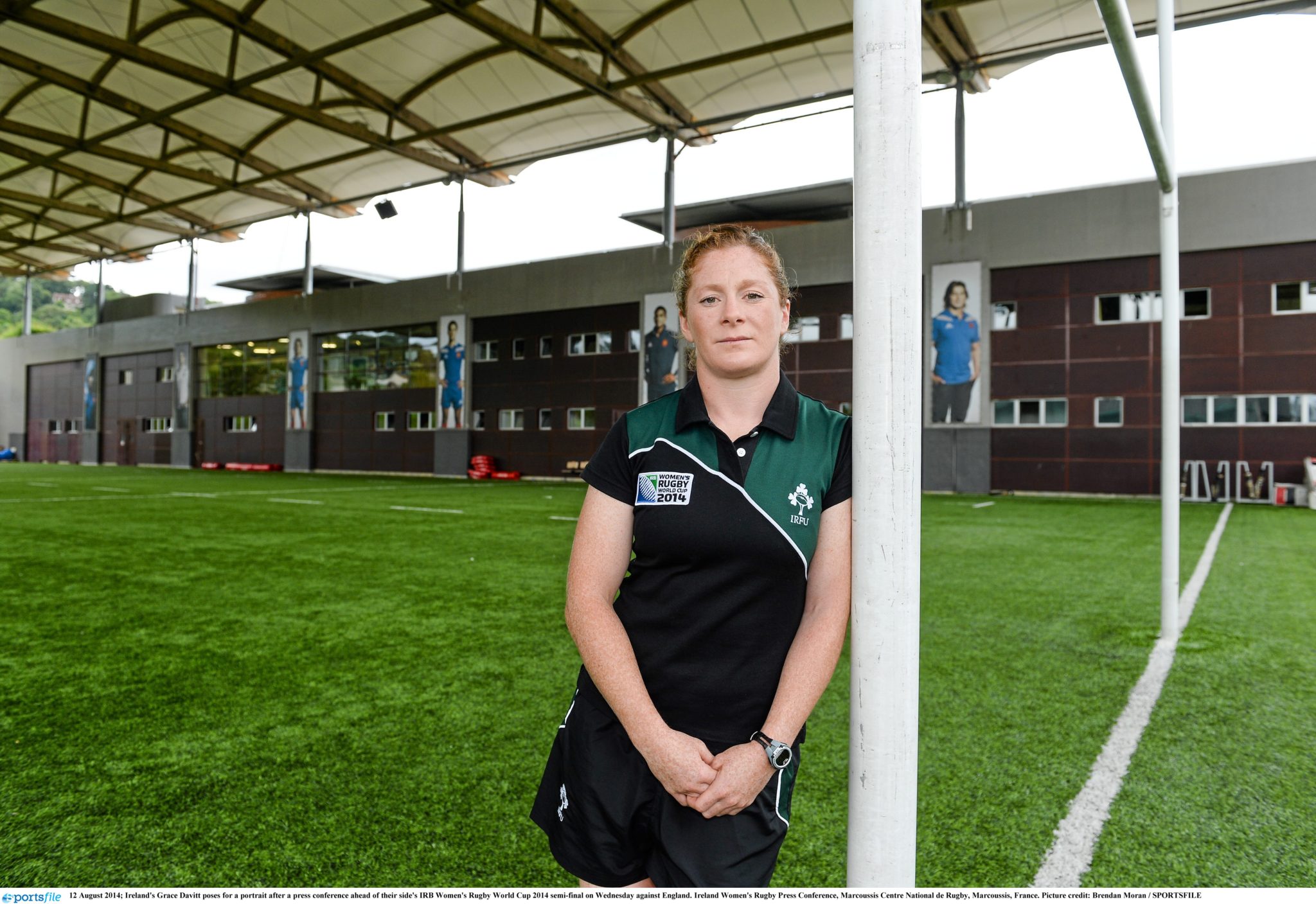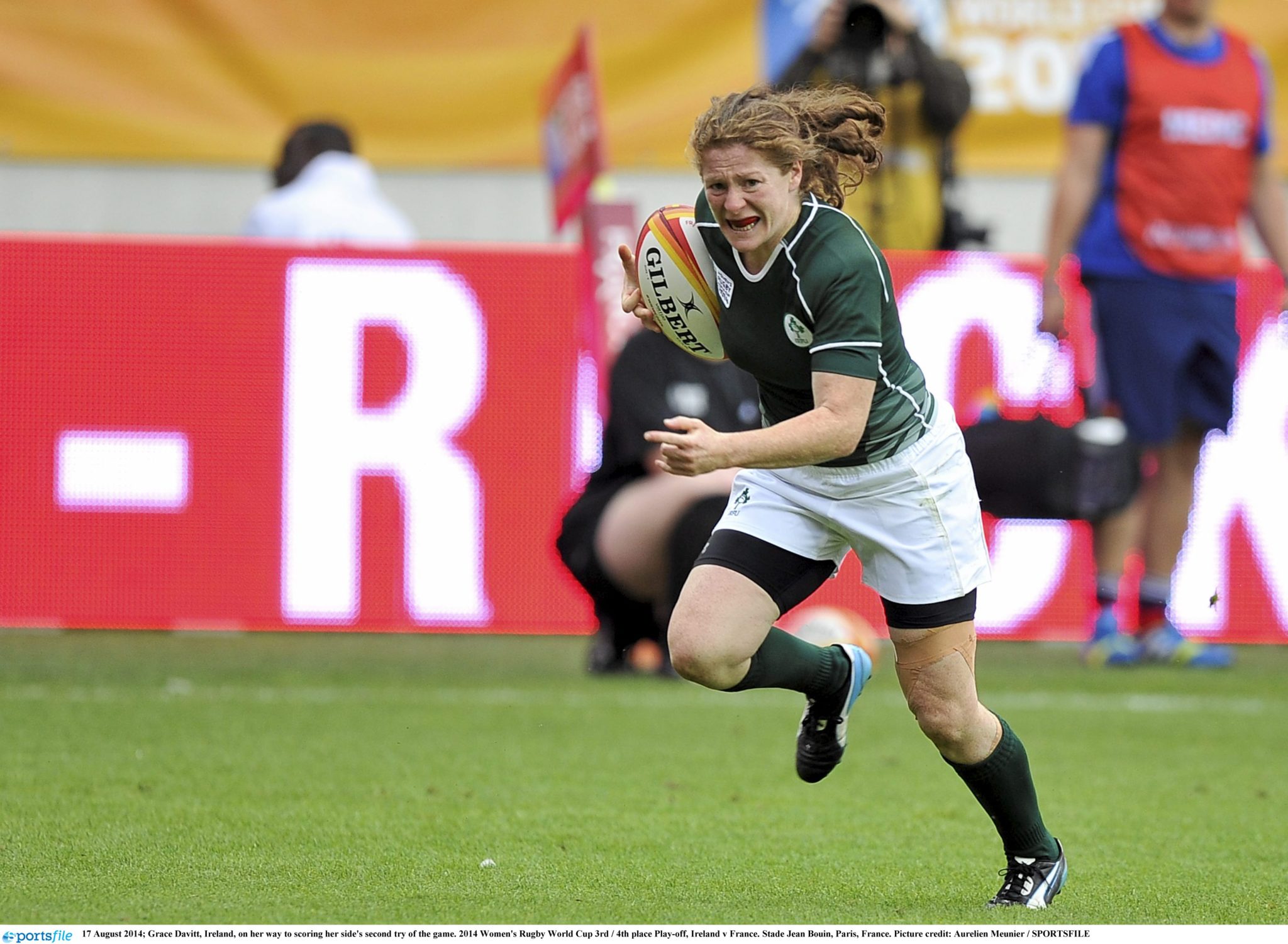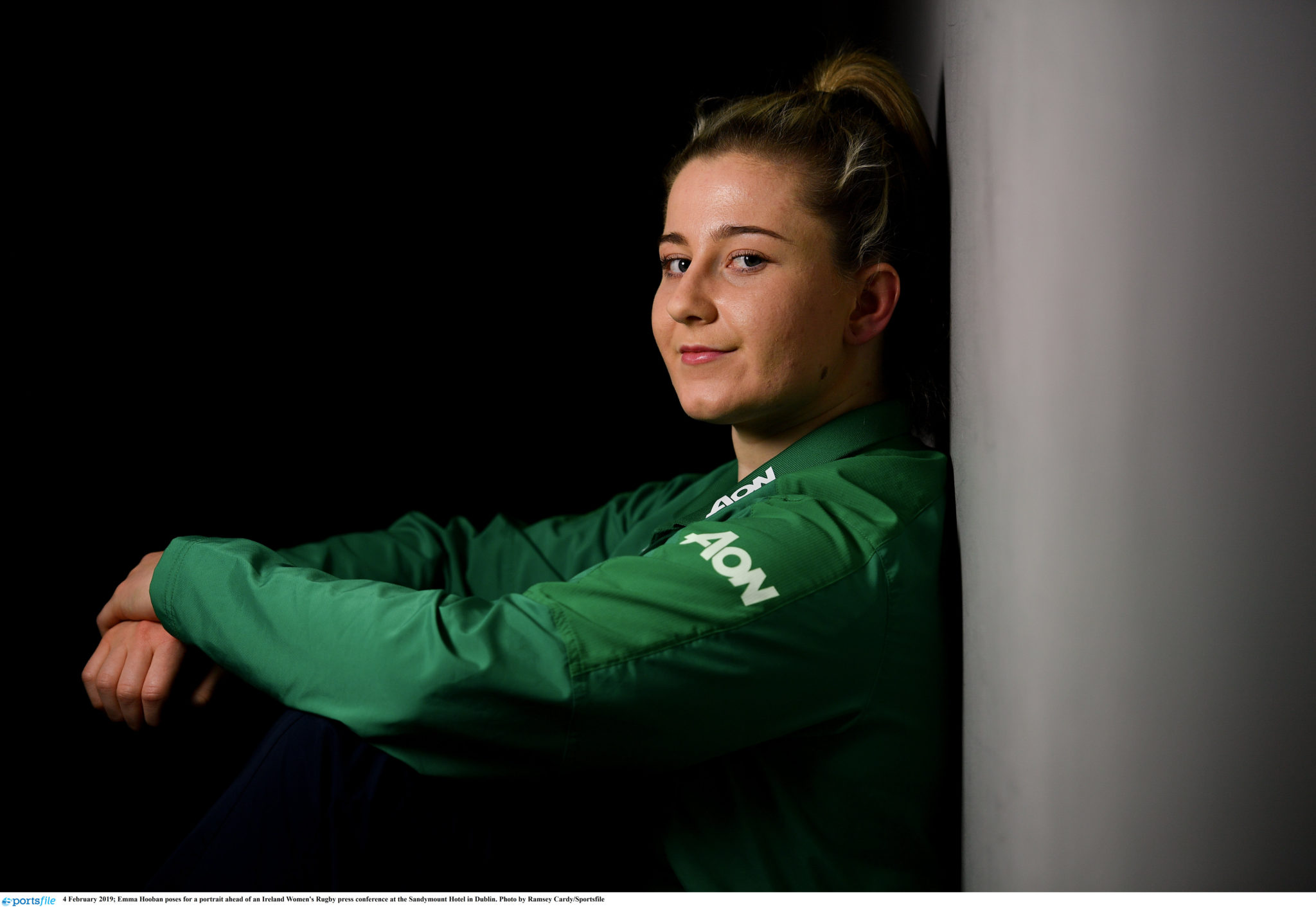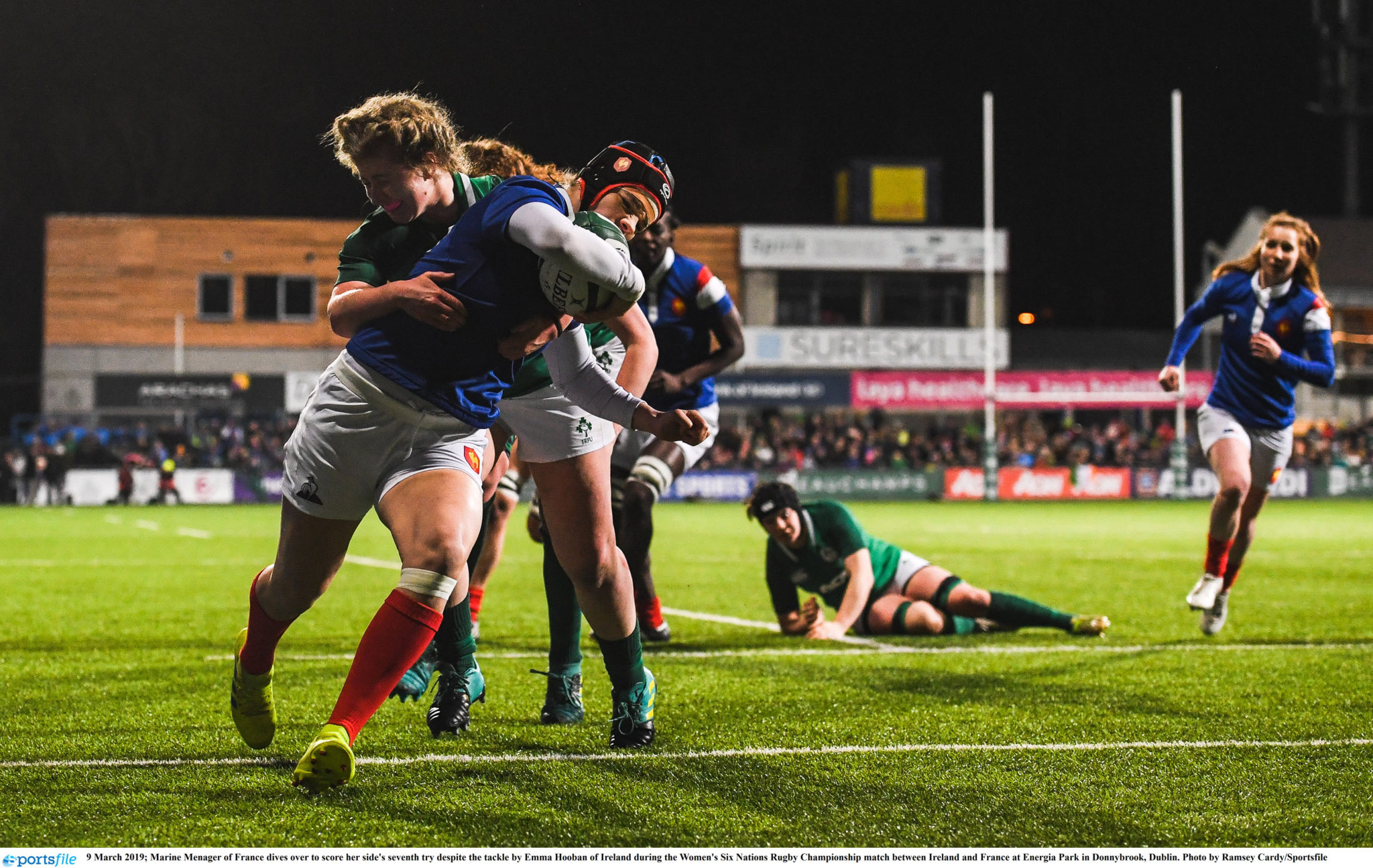Weeks before a group of women’s rugby internationals met with Government ministers about their concerns over the state of the game, two high-profile players discussed their struggles balancing twin careers in rugby and work.
Former internationals Grace Davitt and Emma Hooban revealed the sacrifices they faced as they committed to the demands of elite rugby as part of the 15s set up, which is amateur, alongside the pressures of full-time professional jobs.
Davitt and Hooban were two of the 62 signatories in a recent letter written by current and former Irish women’s rugby internationals to the government that said the players had lost “all trust and confidence” in the IRFU.
There are currently two independent reviews being undertaken into the women’s game and the IRFU have said they will publish the findings, in full, in early 2022.
 Picture credit: Brendan Moran / SPORTSFILE
Picture credit: Brendan Moran / SPORTSFILEA delegation of players met with Ministers for Sport Catherine Martin and Jack Chambers on Monday to discuss their concerns. In a statement, the players said the meeting was “very positive and constructive,” but said the reviews “may well make uncomfortable reading for all involved.”
In their statement, quoted in the42.ie, the players said that since they engaged with the government, “we deliberately chose not to speak out again publicly, not because we do not want to engage in the issues, but because we were unified in the message we sent, and we had no desire for a more public row with our own governing body.”
Davitt and Hooban spoke about the difficulties managing two careers in interviews they gave several weeks before the letter was written to the government.
After 55 international caps, and a career that saw three World Cup campaigns, Grace Davitt retired from rugby in 2014.
She remembers the impact her professional life had on her rugby career.
Davitt said: “I’m a mechanical technician so I climb cranes. One weekend, we had been training in an Irish camp and I went back to work on the Monday - on the Tuesday we had a breakdown on one of the cranes and before lunch, I had been up eight times.”
 Picture credit: Aurelien Meunier / SPORTSFILE
Picture credit: Aurelien Meunier / SPORTSFILE“So I was being sent down and up because they were like ‘ah you’re fit’. I’d go up the crane and grab a part and go back down and then up again,” said Davitt.
She then drove the two hours to Dublin to do a fitness test for the IRFU – and she recalled it did not go well.
“I was dead. I had no recovery and I did really poorly, I got a bad result and I got dropped. It was talked about in a ‘you’re not fit enough’ way,” said Davitt.
“Maybe I wasn’t as fit as I should have been…but with things like that you always wonder… if I had more rest and time to recover would I have done better?”
After some time, Davitt made her way back into the national lineup and continued her career for another five years. A decade on the struggle for professional status still wears on the current crop of players who are faced with the reality of keeping both work and play in equilibrium.
The most recent Irish women’s squad has doctors, physiotherapists, teachers, mechanical technicians and students all training and playing together.
It's clear that Davitt’s troubles weren’t a unique experience, as Irish international Emma Hooban can testify.
 Photo by Ramsey Cardy/Sportsfile
Photo by Ramsey Cardy/Sportsfile“They are the most highly-educated bunch of women you will probably ever come across,” said Emma Hooban.
She described the intense challenge of managing her rugby career alongside her studies and job as a mental health nurse
Hooban said: “I don’t think my career choice was practical to be able to commit to the Irish rugby set up.”
“The first year I was involved, I thought, like okay, ‘maybe I’m just a bit younger I didn’t have a car and I was finding it difficult...and then I had everything in place. I was doing my nursing internship, I was driving and I had my accommodation in Dublin and yet, it was still a massive struggle, and a massive commitment. It seemed to be just all sacrifice,” said Hooban.
“You don't go to college for four years and burst your arse studying to get your degree, to get a job where you just break even, or just barely get by, that shouldn't be the case.”
It is, says Hooban, a “fantastic experience and an utmost honour” to represent your country, but “you shouldn’t have to jeopardise financials and careers for your future, to just play or potentially play a sport.”
“I could do seven nights in-a-row but I have to do the gym and running sessions and be accountable for those as well. That doesn’t stop, it has to be incorporated in. So you’re training and working on top of having no sleep,” said Hooban.
“People are like you know maybe ‘don’t train that week’ but it’s all well and good not to train but then I’m already 10 paces behind where I need to be.”
“There are sacrifices and then there are sacrifices,” she added.
“When everything seems to be a sacrifice it doesn’t make much sense.” said Hooban.
 Photo by Ramsey Cardy/Sportsfile
Photo by Ramsey Cardy/SportsfileMany of Ireland’s Six Nations rivals have addressed the issue of professional status. England, Scotland, France and, most recently, Wales have all offered professional contracts to their players. Currently, Ireland’s sevens set up is semi-professional while their 15s remain amateur.
In April, 123 former Welsh players wrote a joint open letter to the Welsh Rugby Union chief executive Steve Philips calling for the women’s game to be more developed in terms of pathways, regional teams and equal opportunities – “We cannot stand by and watch the women’s game deteriorate any further.”
The Irish international players put the year’s failings into context in the published letter, stating that any filings were simply a reflection of “ multiple cycles of substandard commitment from the union, inequitable and unworthy leadership, a lack of transparency… and an overall total lack of ambition about what it [ the women’s game] could achieve.”
Written by Jessica Woodlock and Alanna Cunnane
Download the brand new OffTheBall App in the Play Store & App Store right now! We've got you covered!
Subscribe to OffTheBall's YouTube channel for more videos, like us on Facebook or follow us on Twitter for the latest sporting news and content.








